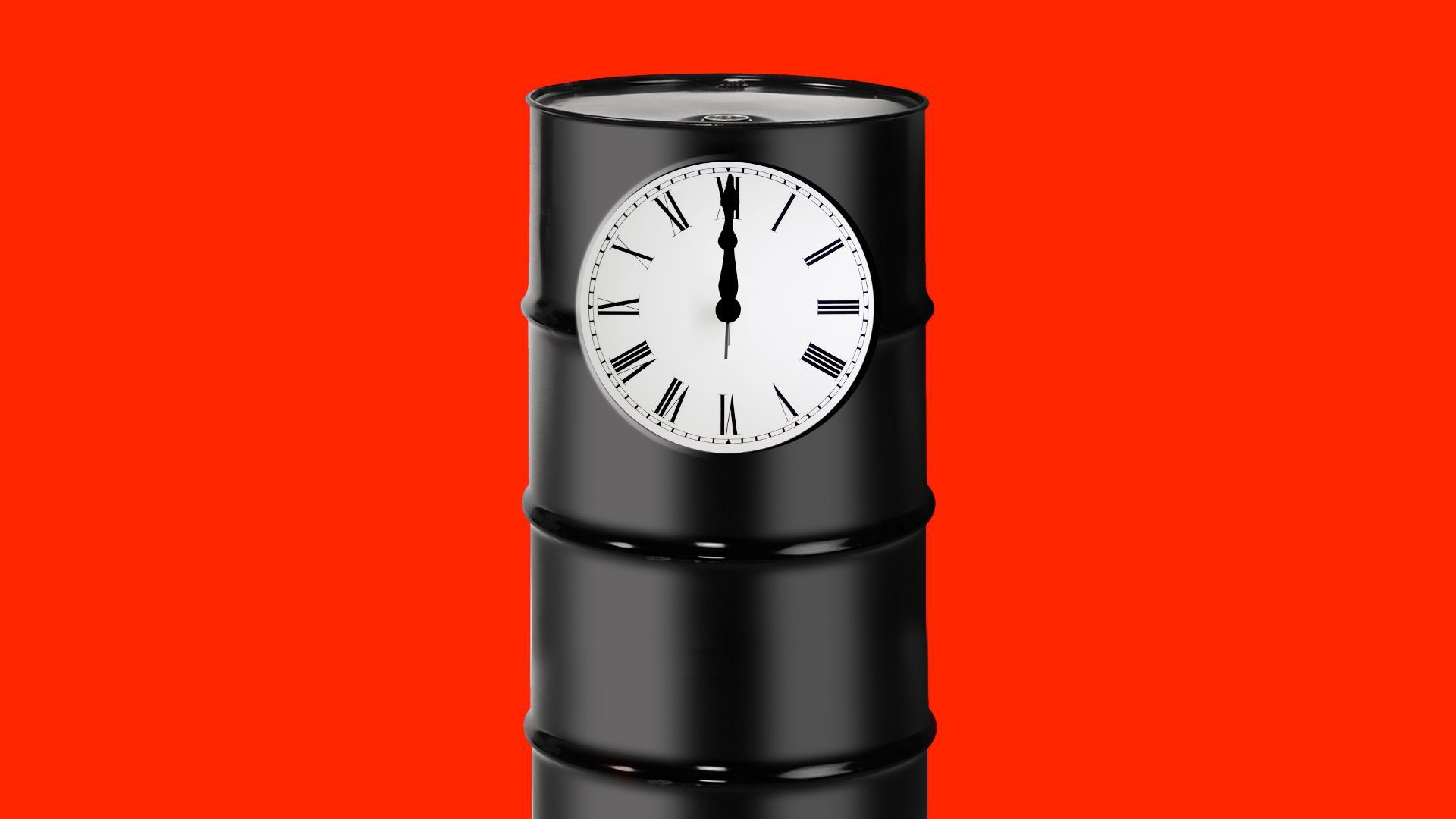
Illustration: Aïda Amer/Axios
The White House’s call for OPEC to pump more oil in an effort to contain gasoline prices has experts puzzled.
Why it matters: While consumers would always love to see lower prices at the pump, they aren’t exactly sounding alarms as confidence remains high and spending has surged above pre-pandemic levels.
- The news is also at odds with the administration's goals for tackling climate change. Days ago, an alarming United Nations report said the connection between human emissions of greenhouse gases and global warming was "unequivocal."
What they’re saying: The timing of Biden’s move is curious, as demand for oil may cool, especially in China, amid the spread of the Delta variant, Helima Croft, RBC Capital Markets global head of commodity strategy, tells Axios.
- In the U.S., the summer driving season is nearing its end, which means gasoline demand is about to taper off.
- "It’s not like this recovery in oil prices at this exact moment looks that strong," Croft says.
Flashback: Worries about oil prices were much greater a month ago, Croft notes, when WTI crude prices breached $75 a barrel and seemed to be heading toward $90.
- OPEC+ eventually agreed to increase oil production by 400,000 barrels per day on a monthly basis starting in August, which put an end to crude’s upward momentum.
Zoom out: But gasoline prices have been climbing. According to AAA, the national average price for gasoline is $3.18 a gallon, up from $3.14 a month ago and $2.17 a year ago.
Our thought bubble, per Axios' Andrew Freedman: While the sitting president is often blamed if gas prices go higher, an Axios Engagious/Schlesinger focus group conducted Tuesday showed that the prices are not yet a top of mind issue.
- None of the 13 voters said the price of gas would motivate them to vote for or against a candidate.
- Focus group participants live in key swing states and voted for Trump in 2016 and Biden in 2020. While a focus group is not a statistically significant sample like a poll, the responses show how some voters in crucial states are thinking and talking about current events.
What to watch: "The question is how far [the Biden administration is] willing to take this request," Croft says.
